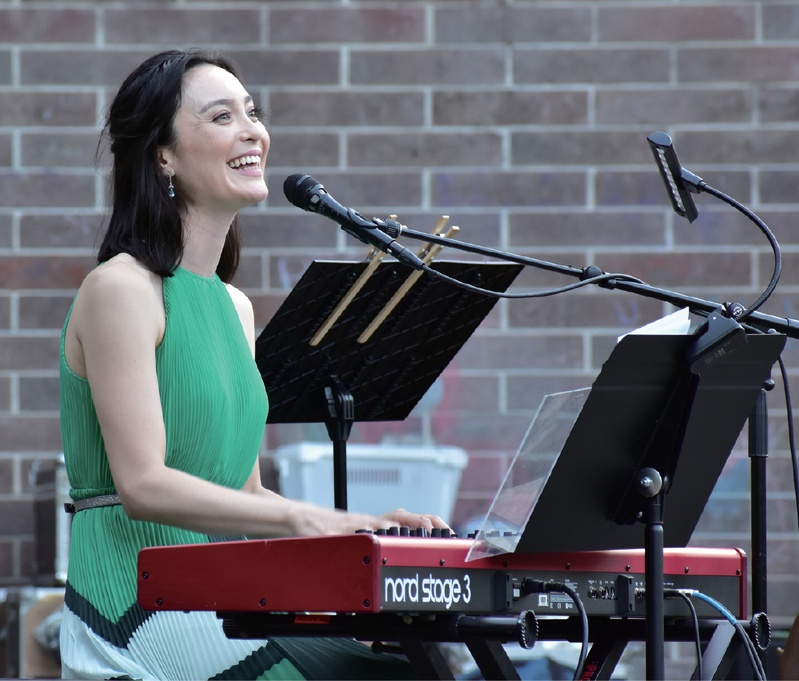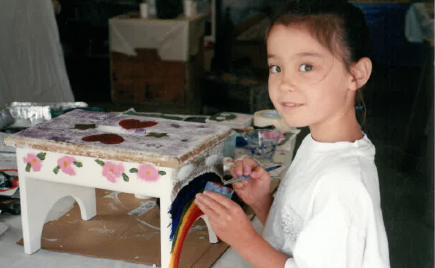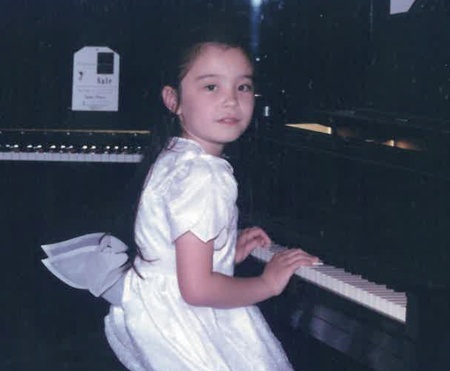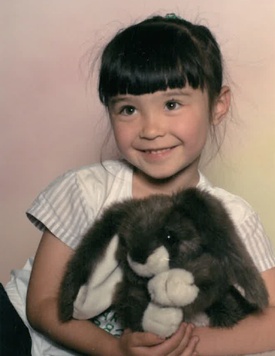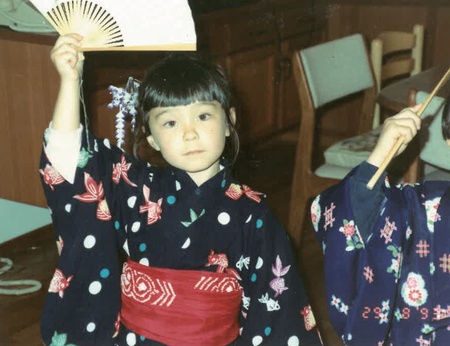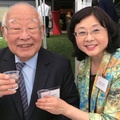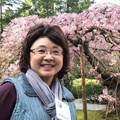Singer-songwriter Emi Meyer was born in Kyoto and raised in Seattle. Last year she celebrated the 10th anniversary of her debut with a triumphal performance in Seattle in July after a seven-year absence. We spoke to Emi about the past, her comeback after marriage and having a child, and what the future holds.
* * * * *
Her Seattle Days
Emi’s mother was a University of Washington graduate student in art history on a 1-year scholarship to Kyoto when she gave birth. “I returned to Seattle soon after I was born,” she says. “At first we lived in Ballard. I remember I really liked the Ballard Locks. We would take walks and I’d play in the dirt and on the grass. My first memories of Seattle were of being in nature in Ballard.”
Influenced by her father, who worked at the Seattle Asian Art Museum, Emi liked to draw. When the family went on a trip, Emi and her dad would draw pictures of the same things together. “During Christmas and New Year’s, we would go to Japan. We also went to Spain and Italy. The drawings I made when I was about 10 years old were the best. I was free and I didn’t worry about how I drew. I’m impressed with the artistic imagination of children. I went to a lot of art classes in Seattle. I was totally into it, so I didn’t feel pressure. I enjoyed it just as I wanted to.”
She started learning the piano at the age of 6. She took lessons in Bellevue. “My piano teacher was like a grandma to me,” Emi recalls. “She didn’t order me to play this or that. She was a teacher who helped pull out my individuality. I love Debussy. His compositions are so colorful. I was absorbed in the music when I played.”
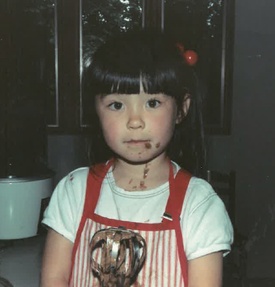
On weekdays, she went to the local school, and on Saturdays, she went to the Seattle Japanese School. Emi confesses that she was a different person at the local school and the Japanese school. “I had my half and mixed friends at the Japanese school, so I didn’t get very nervous. I behaved sociably. But at the neighborhood school, some of the other kids were really strong-willed, and I became shy. I never really became close with anyone and didn’t have any real friends.”
Emi says she didn’t know where she belonged and use to wonder if there two different versions of her. The piano was the thing that brought those two Emis into a unified whole. When she played the piano, she didn’t think about what sort of person she needed to be, nor what she should say … all of that disappeared as she concentrated on the keys. Her performances were well-received at both the neighborhood school and the Japanese Saturday school.
“When I played the piano, I was accepted by everyone and I didn’t have to worry about trying to be cool or being more outgoing,” she says. “This is how I came to meet people. It was through my music. When I sat down at the piano, I knew my place in the world.” Emi found her own identity through her music. “Was I a Japanese or American, white or Asian American, or an immigrant? It wasn’t any of those things but as a musician that I established my identity, I believe.”
Meeting Important People
“I am most relaxed when I am surrounded by musicians,” she says. “We deepen our bonds as we talk about music.” The piano in her house is a Steinway, the same piano she first played with her old teacher. It makes the sounds she has been most familiar with since childhood. When she plays live, she is most at home on a Steinway. “Although my teacher has passed away, I sometimes think about her as I play,” she says.
At first she played on an upright piano; but just as she started thinking that to be serious about this, she should be playing a grand piano, a man in her neighborhood sold her a grand that was in his house and not being used. “It’s an expensive item, so I think it was not cheap for my parents,” she recalls. “They believed in the talent of their daughter, who was absorbed in the piano, and wanted to support my growth. I am very grateful.”
She got a whole bunch of jazz cassettes from a childhood friend whose dad played jazz trumpet. “Thelonious Monk and Miles Davis and so on. I hadn’t listened to them in a long time, and they were collecting dust, but when I was in middle school, I was invited by a friend to join a jazz band and I began listening to the tapes. I hadn’t been interested in them at all to that point, but then I fell hard for them. I listened to them over and over. Then I began to learn all about jazz from my friend’s dad.” From that point until she graduated from high school, she attended the jazz workshops at Port Townsend every year. One of the band members on stage last July with Emi now teaches at those camps.
Emi began playing jazz and classical piano on a part-time basis at an Italian restaurant in Pike Place Market, the Pink Door, and other places. She also began to write music. She even blended in a few of her original pieces with her part-time repertoire. “It’s background music for the restaurant, and barely anyone is listening,” she says with a laugh. Emi also started singing while playing piano.
When Emi was attending university in Los Angeles, she got a call from the mother of a childhood friend from the Seattle Japanese school. “There is a contest here in Seattle. Won’t you come back and enter it?” the mom asked me. It was the Seattle-Kobe jazz vocalist contest. “That’s what pulled me in,” Emi says. Winning that contest launched her singing career. She was 18.
Emi also met a friend while attending university who had been raised in Los Angeles and was familiar with the music business. That friend heard Emi perform a song at a school dormitory. She couldn’t bring herself to say she wrote the song herself, so she lied and said a friend wrote it. The friend retorted, “You wrote it, didn’t you?” “She saw right through me,” she says with a laugh. “She said I should sing it in front of other people, giving me a boost. She said, rather than keeping something like that all to yourself, an artist needs to have others hear it.”
The friend booked some studio time for Emi. She made an EP with four songs on it. This was before her debut, “Curious Creature” and has yet to be released. “It was all handmade. The CD is called Magnolias. Outside the window of the house in New Jersey where my dad grew up, you could see magnolia trees. The song was made in the image of those trees. It’s probably because of the way I was raised in Seattle, but I always turn to greenery and nature. My piano at home is surrounded by windows. That’s why I am adept at singing while seeing and feeling the trees, branches, leaves, wind, etc.”
Emi says getting to know people is the most important part of her life. “It’s like opening a door to a different world,” she says. Your path is decided by who you meet, and you are invited into worlds you never knew before by different people. When you share the world with special people, you can do things that you couldn’t manage alone and understand things you couldn’t understand by yourself. You can learn to like things you once feared. The parents of my childhood friends, friends from my university days – if I hadn’t met those people, I wouldn’t be here. That is still so important to me.”
*This article was originally published by Soy Source on December 12, 2019 and additionally published by The North American Post on January 23, 2020.
© 2020 Hitomi Kato / Soy Source / The North American Post


